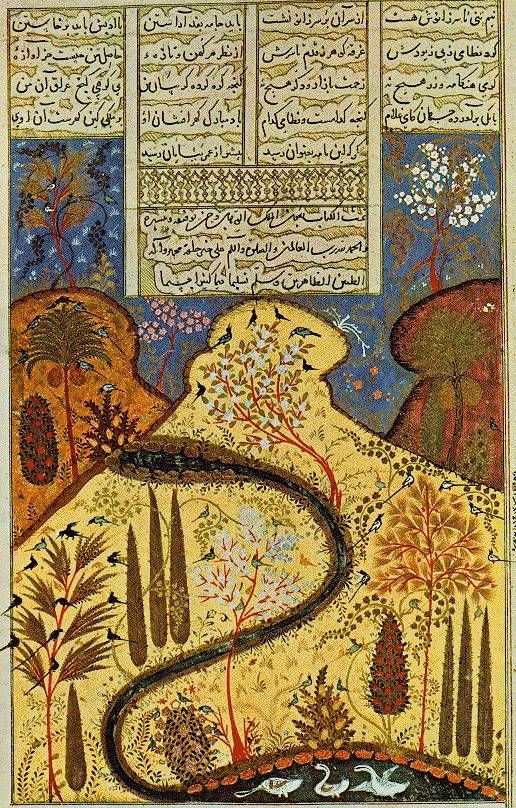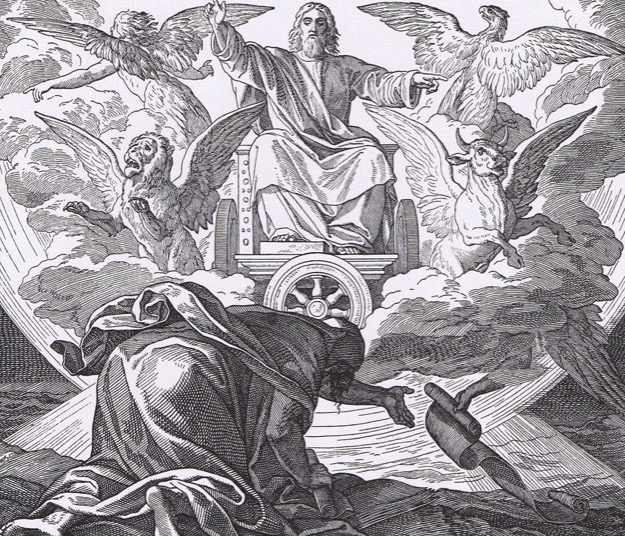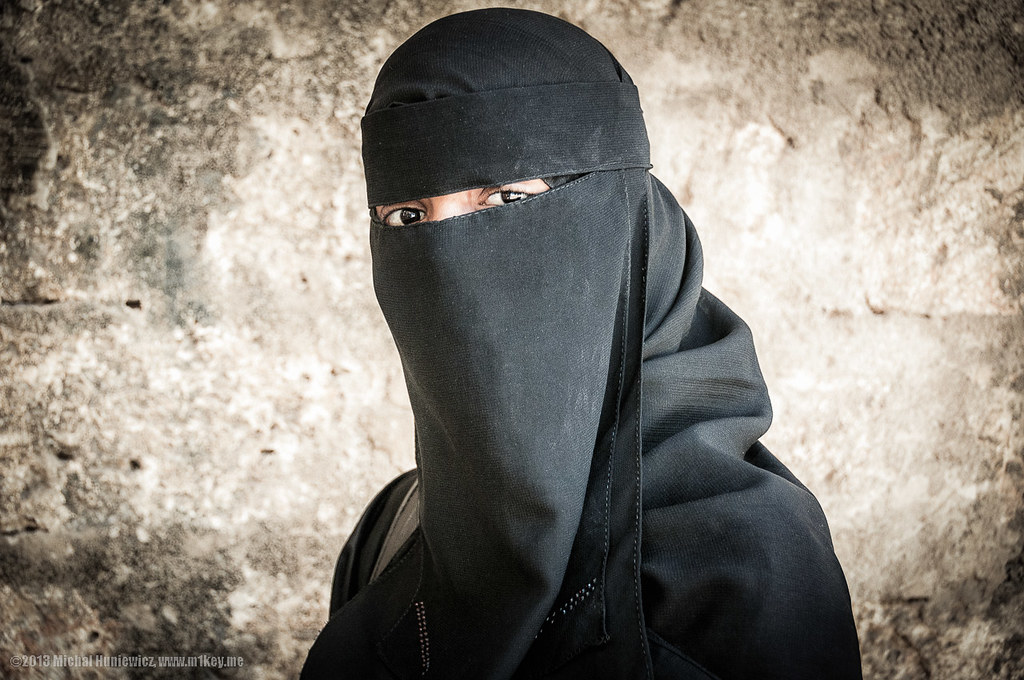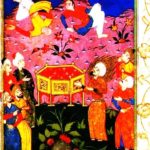In spite of the fact that the Quran is an intensely literal book, Muhammad sometimes added layers of meaning to the text. This surah is one of the quirkier instances of this:
- Indeed, we have given you the abundance,
- So pray to your Lord and sacrifice.
- Indeed, your hater, he is the one cut off.
This is yet another surah blasting Muhammad’s early critic, Abu Lahab. But Muhammad was asked what exactly the “abundance” that he was given meant. In the surat just before, Muhammad was talking about his earthly increase in his position after he had married Khadija, but that seems a bit odd here because the word translated as “cut off” means specifically one without male heirs, and obviously, Muhammad did not have male heirs, while Abu Lahab did.
However, it is precisely in the context of being called “cut off” that this surah is said to have been revealed:
It has been reported that `Ata’ said, “This Surah was revealed about Abu Lahab when a son of the Messenger of Allah died. Abu Lahab went to the idolators and said, `Muhammad has been cut off (i.e., from progeny) tonight.’ So concerning this Allah revealed [this surah].
Tasfir ibn al-Kathir
Many different versions of this narration exist. This doesn’t mean that the child died soon before this revelation–it just may be an issue of Abu Lahab’s favorite insult–but it is quite suggestive.
The context for this was another mystical dream-vision. As related most fully, this is the context:
Anas ibn Malik narrated:
“One day when he-the Prophet (ﷺ)- was still among us, he took a nap, then he raised his head, smiling. We said to him: ‘Why are you smiling, O Messenger of Allah?’ He said: ‘Just now this Surah was revealed to me: In the Name of Allah, the Most Gracious, the Most Merciful. Verily, We have granted you (O Muhammad) Al-Kawthar. Therefore turn in prayer to your Lord and sacrifice (to Him only). For he who hates you, he will be cut off.’ Then he said: ‘Do you know what Al-Kawthar is?’ We said: ‘Allah and His Messenger know best.’ He said: ‘It is a river that my Lord has promised me in Paradise. Its vessels are more than the number of the stars. My Ummah will come to me, then a man among them will be pulled away and I will say: “O Lord, he is one of my Ummah” and He will say to me: ‘You do not know what he did after you were gone.”
Sunan an-Nasa’i 904
The prophetic dream places this early, in parallel with the dream-vision of the cave and so on. Some of the elements are anachronistic–the bismallah doesn’t have Allah’s name actually in it, of course, but rather the generic word al-ilah, but more than that, it has the name al-Rahman, which does not mean “Most Gracious,” which had not yet be introduced, along with some elaborations about what would happen when he was “gone,” but the context was nevertheless interesting. Another version says,
When the Prophet of Allah (ﷺ) was lifted to the heavens (for travelling) in Paradise, or as he said, a river whose banks were of transparent or hollowed pearls was presented to him. The angel who was with him struck it with his hand and took out musk. Muhammad (ﷺ) then asked the angel who was with him: What is this? He replied: It is al-Kawthar which Allah has given you.
Sunan Abi Dawud 4748
Another calls it “whiter than milk and sweeter than honey.”
Later scholars bicker over the meaning of sacrifice to make it mean something other than animal sacrifice, but earlier scholars are in agreement that it means just that.





